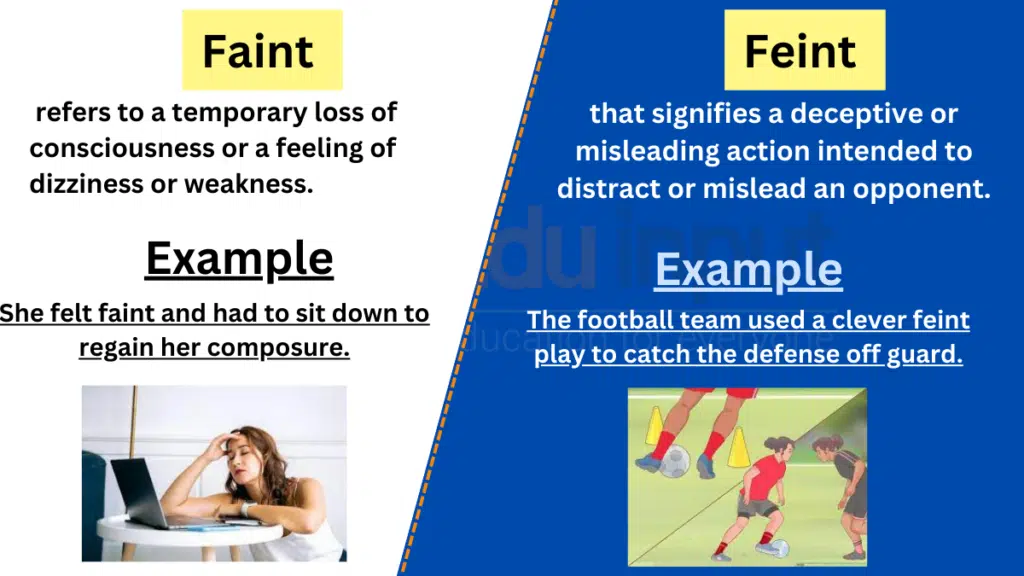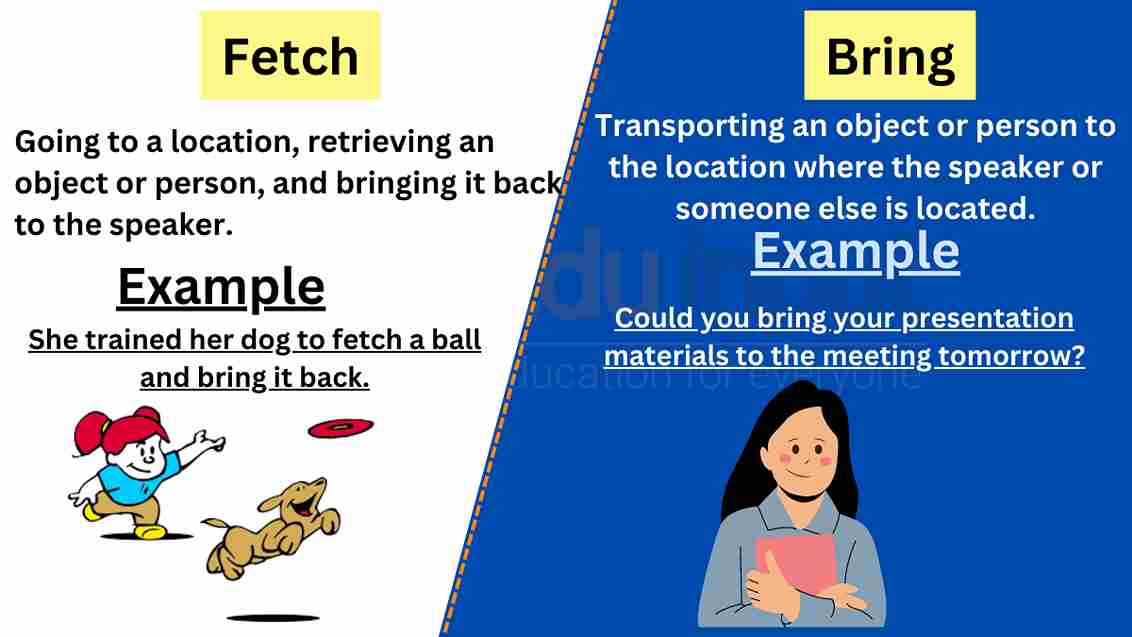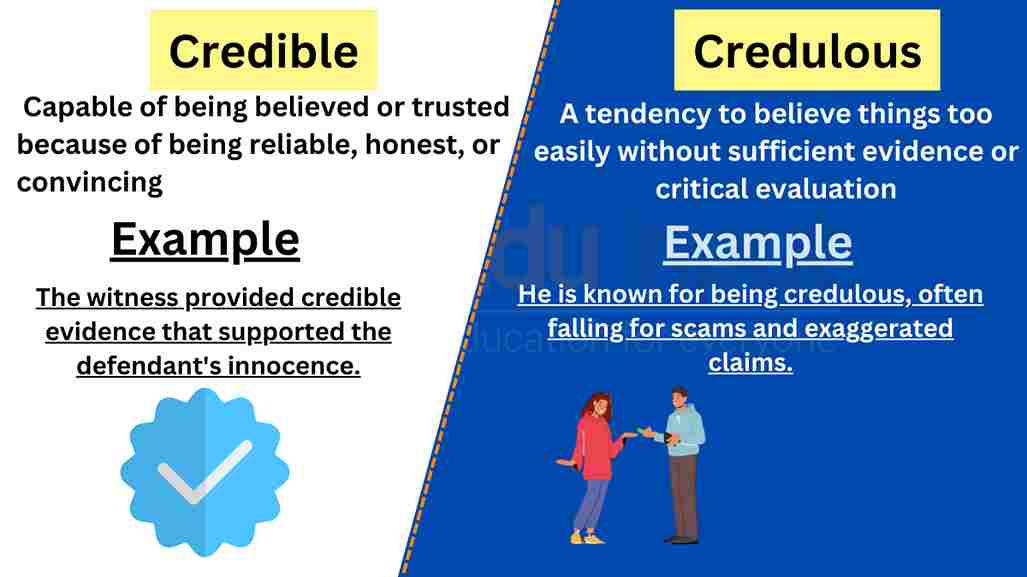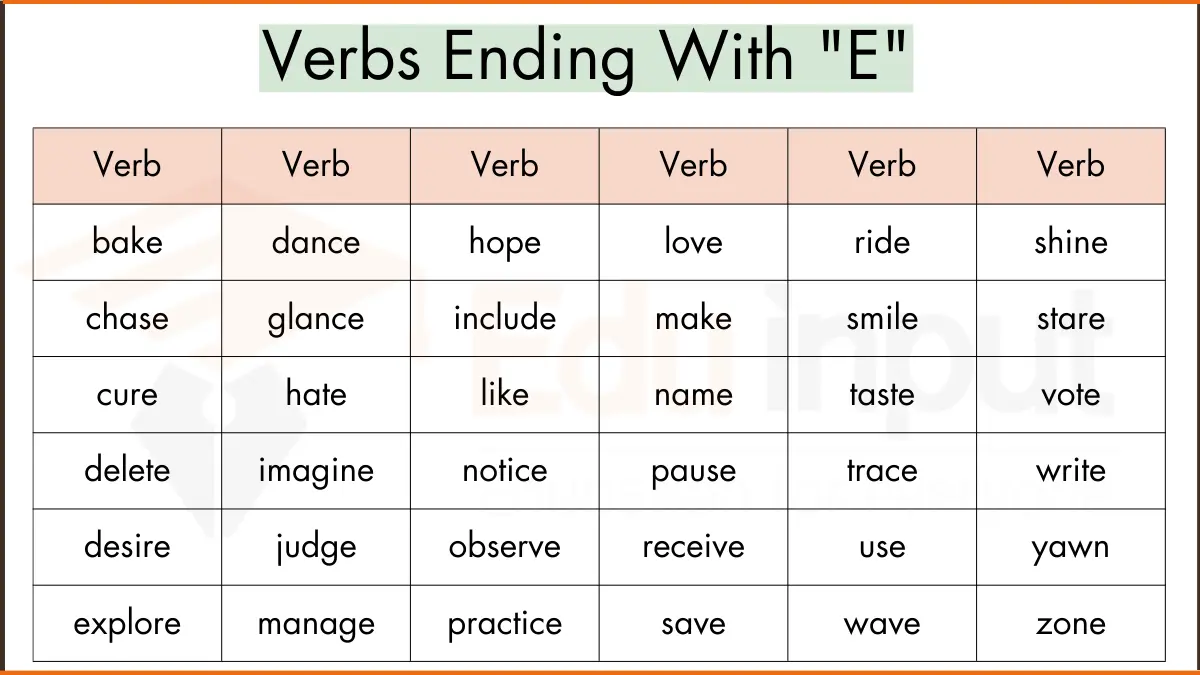Faint vs. Feint-Difference between and Examples
The words “faint” and “feint” may appear similar, but they possess distinct meanings and usage. Understanding the subtle differences between these terms is crucial for effective communication and precise expression. This article aims to unravel the disparities between “faint” and “feint” through comprehensive definitions, illustrative examples, and practical insights. By discerning their unique connotations, we can ensure accuracy and clarity in our communication.

Meanings and Examples
Faint meaning
The meaning faint refers to a temporary loss of consciousness or a feeling of dizziness or weakness.
Faint Examples
a) She felt faint and had to sit down to regain her composure.
b) The heat and exhaustion made him grow faint during the marathon.
c) The sight of blood caused her to feel faint.
Feint meaning
Feint is a noun or verb that signifies a deceptive or misleading action intended to distract or mislead an opponent.
Feint Examples
a) The boxer executed a quick feint to confuse his opponent before landing a powerful punch.
b) In chess, a well-executed feint can lure the opponent into making a costly mistake.
c) The football team used a clever feint play to catch the defense off guard.
Difference between Faint and Feint
| Faint | Feint | |
| Meaning | Temporary loss of consciousness or weakness | Deceptive or misleading action |
| Example | “She felt faint and had to sit down.” | “The boxer executed a feint to confuse his opponent.” |
| Usage | Describing a physical condition | Referring to a deceptive tactic |
| Connotation | Physical sensation of weakness or dizziness | Strategic action to deceive or mislead |
Usage in a Paragraph
As Sarah stood under the scorching sun, she began to feel faint. The intense heat and lack of hydration took a toll on her, causing her vision to blur and her legs to wobble. Concerned for her well-being, her friends rushed to her side, offering water and a shaded spot to rest. Meanwhile, in a different setting, the skilled swordsman executed a feint with precision during his duel. With a swift movement, he made a deceptive attack toward his opponent’s left side, distracting him momentarily before delivering a powerful strike from the opposite direction. The opponent, caught off guard by the feint, struggled to defend against the unexpected assault.
Distinguishing between “faint” and “feint” is essential for clear and accurate communication. “Faint” pertains to a temporary loss of consciousness or a feeling of weakness, describing a physical condition. On the other hand, “feint” involves a deceptive or misleading action, typically employed to distract or mislead an opponent. By using these words correctly, we can convey our experiences and intentions with precision. Understanding the disparities between “faint” and “feint” enables us to articulate our thoughts effectively and ensures that our message is received and interpreted accurately.






Leave a Reply